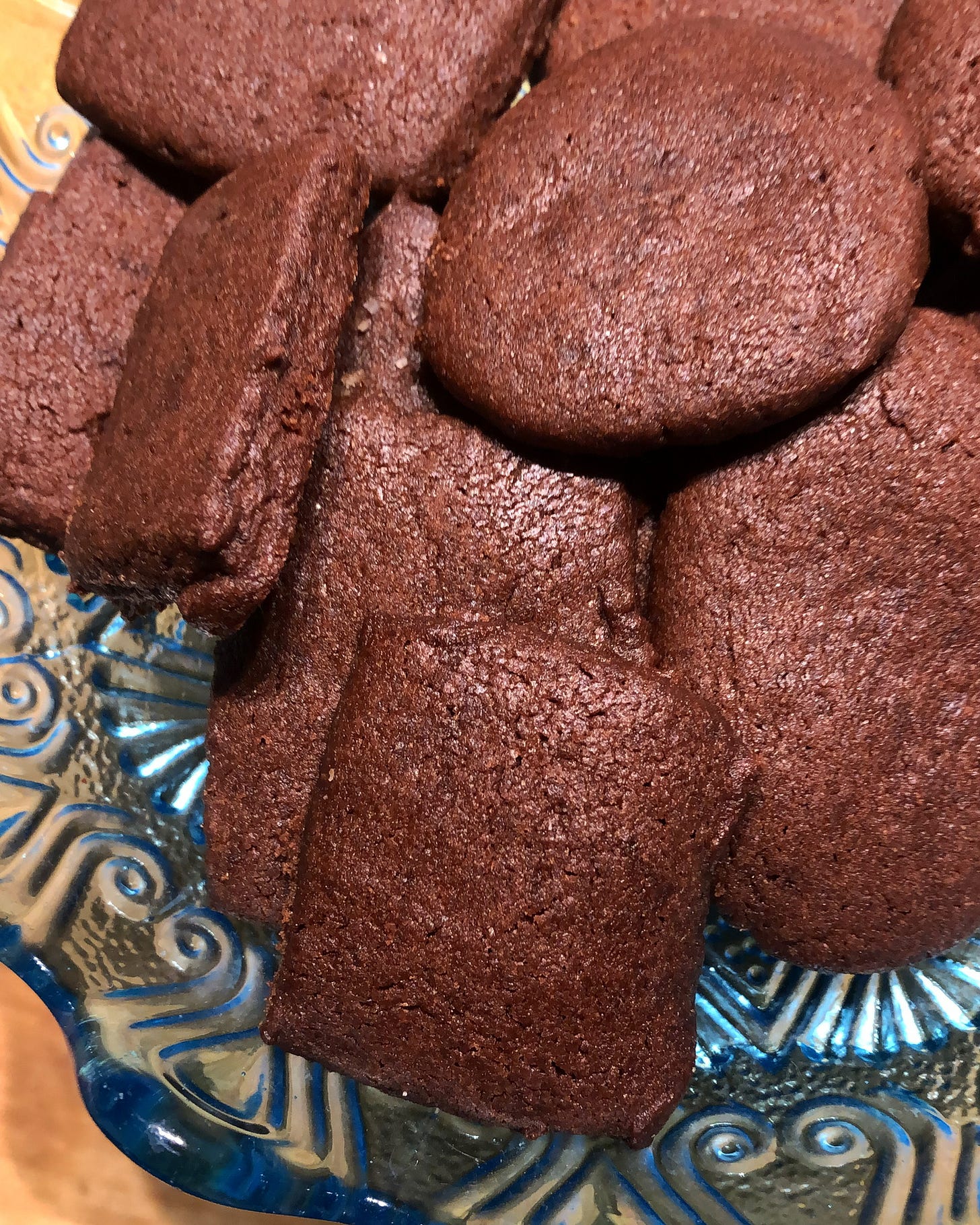More Voters, More Chances
Olympic excitement and chocolate cookies
This morning on the radio (France Culture, a French national treasure), I listened to two women debate the various economic proposals from parties running in the hastily called French elections. I’m no economist but I understand the basics, and it is horrifying to learn how weak so many of the proposals are. And unrealistic.
I also learned that 400,000 voters designated others to vote for them. The way this statistic was interpreted is that these represent voters who didn’t show up for the European election but want to ensure they will be represented for the national election. The radio announcer was gleeful as he said, “Maybe we’ll have a terrific turnout”.
Other than that, Paris - and many other parts of France and its dominions – is gearing up for the huge party which is the Olympic games, and excitement is palpable. In fact, we’re getting to napkin folding and table setting time as the large constructions appear to be mostly in place. Les Invalides is nearly obstructed from view by the high wood walls of the archery range; Trocadero is a rat’s nest of traffic because of the bleachers which will afford excellent views of cycling and other athletic endeavors (running, throwing, walking), and forget Place de la Concorde, which is closed to prepare for basketball, break dancing, cycling, and skating.
Bridges will soon be closed, deliveries for all but essentials will cease, many shopkeepers will take their vacations early rather than risk empty shelves.
Increased security has been promised which most likely accounts for the unusual presence of four pairs of police on the Pont d’Iéna yesterday, at the ready as they eyed people walking by. We’re accustomed to white vans filled with CRS, special national police, parked here and there; now they are joined by grey vans full of local police which are stationed at many street corners.
The games, the organization, the new structures, the hype, the different transport routes, the urging for residents to buy their Navigo passes now before metro fares double is already a lot to pay attention to. Combine that with an election that could change France dramatically and possibly take it back to an era many would wish to forget, is a lot of complexity to handle.
And yes, there is grumbling, some of it done by me as I ride to an address I know well and must go way out of my way to get to. But overall, the mood is festive, nervously excited. And so many people I know are planning parties as we say goodbye to the academic year and hello to an uncertain summer.
When times are uncertain, hosting or attending a party is a good way to deal with it. And I’ve got to get going now, because I’ve been asked to bring cookies to an event and the butter is melting as I write. Before I go, let me share the recipe; it is quintessentially French, from Normandy, and I picked it up one hot afternoon after buying a little bag of these treasures from a bakery, tasting one, and nearly causing an accident as I turned around to rush back and see if I could get the recipe. The bakery was closed but I took down the number, called, and victory was mine. And yours. Bon App!
CHOCOLATE NORMANDY SAND COOKIES
LES SABLES DE NORMANDIE AU CHOCOLAT
The original sablé was vanilla, so if you prefer that, replace the cocoa with the same amount of flour.
13 ounces (26 tablespoons;400g) unsalted butter, at room temperature
1 cup plus 2 tablespoons (140g) vanilla confectioner’s sugar
1 large egg, lightly beaten
3 cups (405g) all-purpose flour
3/4 cup (75g) unsweetened cocoa
Pinch of sea salt
½ teaspoon baking powder
For rolling the sablés - optional:
½ cup (100 g) vanilla sugar
1. In a large bowl or the bowl of an electric mixer, mix the butter until it is soft and pale yellow. Add the confectioner’s sugar and mix well. Add the egg and mix until it is blended.
2. Sift the flour, the cocoa, the salt and the baking powder onto a piece of parchment paper and add to the butter and sugar mixture and mix well.
3. Turn the dough out onto a lightly floured surface and divide it into six pieces. You may roll out each piece into a rectangle that is about 1/4-inch;6mm thick, refrigerate it, cut the cookies into squaresor rectangles, separate them leaving about 1/2-inch; 1.2cm space between them, and bake OR roll each piece of dough into a log that measures 1-inch (2.5cm) in diameter. Sprinkle the vanilla sugar on a flat work surface and roll each log in the sugar to coat it evenly, then. Wrap and refrigerate for at least 2 hours and up to 24 hours.
4. To bake the cookies, preheat the oven to 425°F (220°C). Line two baking sheets with parchment paper.
5. If you’ve cut the cookies, slip them into the middle of the oven and bake until they are puffed, about 8 minutes. If you’ve rolled the dough into logs, cut the logs into 1/4-inch (6mm) thick rounds, and set them on the prepared baking sheet, leaving about ½-inch;1.2 cm space between each sablé. Bake in the center of the oven until they are golden at the edges, 7 to 8 minutes. Remove from the oven and transfer them to wire racks to cool. Repeat with the remaining dough.
Makes about 6 dozen sablés


